Disclosure: This article contains affiliate links. We may earn a commission from purchases at no extra cost to you, which helps our travel content.
When my anthropology research led me to Brazzaville last fall, I expected to find interesting connections between traditional Congolese medicine and local brewing practices. What I didn't expect was to discover one of Africa's most underrated cultural destinations. The Republic of Congo's capital offers a fascinating blend of French colonial influence, vibrant Congolese traditions, and an emerging craft beverage scene that few travelers ever experience. Grab your field notes—we're diving deep into authentic Brazzaville, where colonial architecture meets traditional healing and unexpected brewing innovations.
Navigating Brazzaville's Cultural Landscape
Brazzaville demands a different approach than your typical tourist destination. The city stretches along the Congo River, directly facing Kinshasa across the water, creating one of the world's most fascinating urban contrasts.
During my week here, I quickly learned that having a local contact makes all the difference. Through my university connections, I met Pascal, a graduate student researching traditional medicine, who became my cultural bridge. If you don't have academic connections, services like WithLocals can connect you with knowledgeable local guides who understand the nuances of Congolese culture.
The Poto-Poto neighborhood became my base for exploration. This artistic quarter houses the famous Poto-Poto School of Painting, where you can watch artists work and even participate in workshops. What struck me most was how the artists incorporate traditional medicinal symbols into their vibrant canvases—a visual representation of the connection between art, spirituality, and healing that permeates Congolese culture.
My anthropological background helped me appreciate these connections, but any curious traveler can access these experiences with respectful interest and the right introductions.
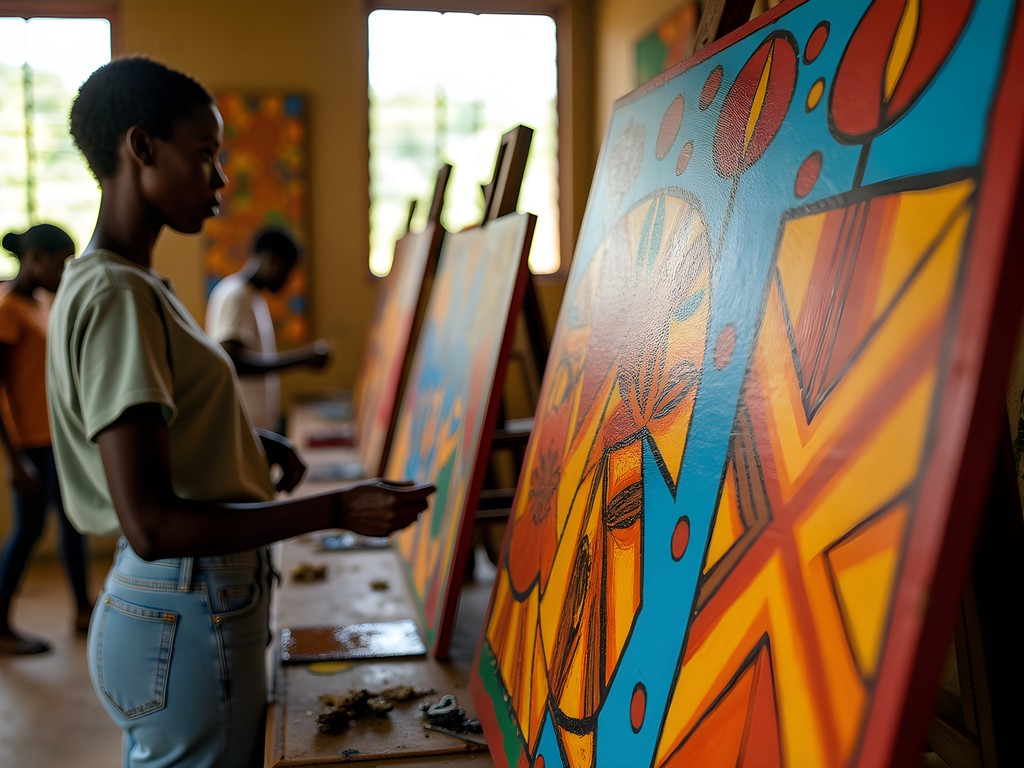
💡 Pro Tips
- Learn basic French phrases—English is limited outside tourist areas
- Dress modestly but prepare for heat and humidity with breathable fabrics
- Always ask permission before photographing people or cultural practices
Traditional Medicine Meets Modern Brewing
My academic focus on the intersection of brewing traditions and medicinal practices led me to some fascinating discoveries in Brazzaville. Through Pascal's connections, I gained access to a small community where a local nganga (traditional healer) demonstrated how certain indigenous plants are used in both healing rituals and the fermentation process of traditional alcoholic beverages.
The parallels between brewing and medicine here aren't coincidental—many of the same botanicals that provide medicinal benefits are also used to flavor and preserve traditional drinks. I documented these processes using my field recorder, which proved invaluable for capturing interviews in noisy market environments.
For those interested in traditional medicine, the Marché Total offers an eye-opening experience. This sprawling market features vendors selling medicinal herbs, roots, and preparations. While some tourists find it overwhelming, I found that approaching vendors with genuine curiosity and respect opened doors to incredible knowledge sharing.
One particularly memorable experience was participating in a small-batch brewing session where palm sap was fermented with specific medicinal herbs. The brewer explained how different ingredients were added at precise times to enhance both flavor and health benefits—a practice that reminded me of similar approaches I'd documented in Bavarian brewing traditions, though with entirely different botanical profiles.
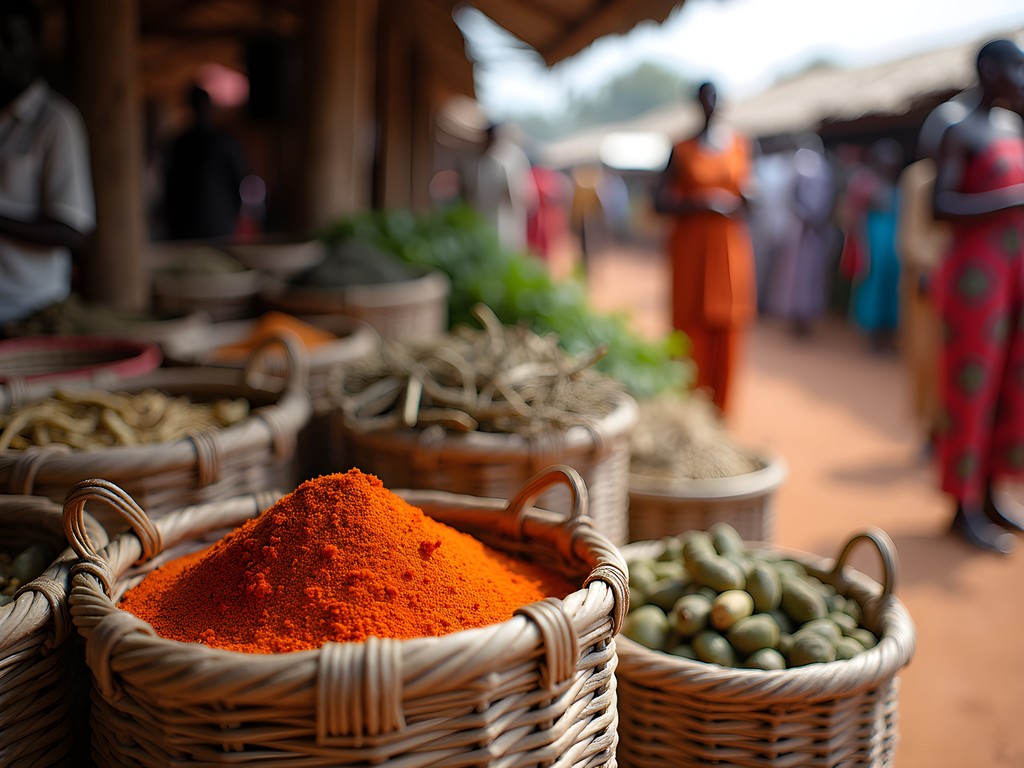
💡 Pro Tips
- Bring small denominations of Central African Francs for market purchases
- Consider traveling with a knowledgeable local guide when visiting traditional healers
- Keep a pocket field guide for documenting plant names and uses
Riverside Revelations: The Congo's Cultural Crossroads
No visit to Brazzaville is complete without spending time along the mighty Congo River. The riverside promenade offers spectacular views of Kinshasa across the water and serves as a gathering place for locals, especially at sunset. I spent several evenings here, notebook in hand, observing how this natural boundary shapes the cultural identity of Brazzaville's residents.
For the best experience, I recommend bringing a comfortable portable chair to the riverside at dusk. The locals were amused by my portable seating, but it sparked conversations that wouldn't have happened otherwise. Several evenings, I found myself sharing palm wine with fishermen who explained how river spirits influence both fishing practices and traditional brewing methods.
The Marien Ngouabi Mausoleum, honoring Congo's former president, provides historical context for understanding the country's post-colonial development. While not directly related to my research interests, understanding the political history helped me contextualize how traditional practices have survived and evolved through periods of significant social change.
For couples seeking a memorable experience, I suggest booking a sunset river cruise through your hotel. These small boat excursions offer unique perspectives of both Brazzaville and Kinshasa while providing opportunities to witness traditional fishing techniques up close. Just be sure to bring a waterproof dry bag for your electronics—the spray from passing boats caught me off guard more than once!
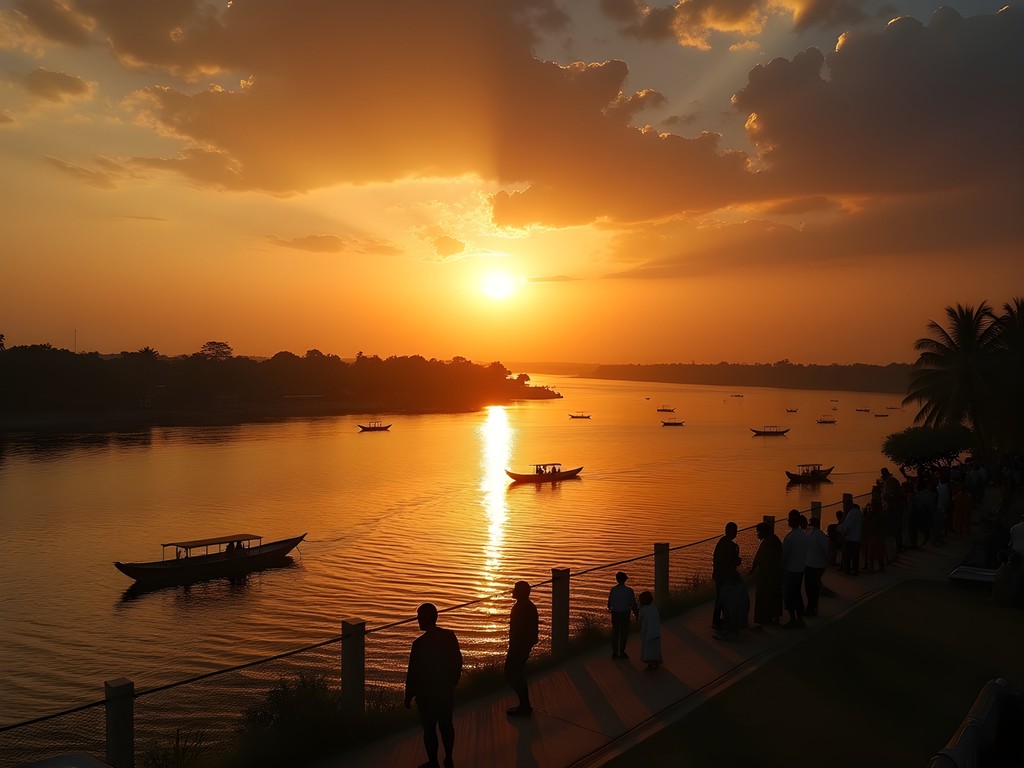
💡 Pro Tips
- Visit the riverside promenade at sunset when temperatures are cooler and locals gather
- Bring a small gift (like coffee or tea) if invited to someone's home
- Download maps offline as internet connectivity can be unreliable
Urban Brews: Brazzaville's Emerging Craft Scene
While traditional fermentation practices were my primary research focus, I was pleasantly surprised to discover Brazzaville's nascent craft brewing scene. The colonial influence has left a legacy of beer appreciation, but young Congolese entrepreneurs are now blending European techniques with local ingredients and traditions.
Mami Wata, a small brewpub near the city center, became my regular haunt. The owner, Jean-Michel, studied brewing in Belgium before returning to his hometown to open this unique establishment. What makes his approach fascinating is how he incorporates traditional medicinal plants into modern brewing recipes—creating beers with distinctly Congolese character.
I spent several afternoons documenting his brewing process, even assisting with a batch that incorporated ginger, hibiscus, and a local root traditionally used to treat digestive issues. The resulting beer was unlike anything I'd tasted in my extensive brewing explorations across Europe and the Americas—tart, refreshing, and with a complexity that reflected its cultural hybridity.
For serious beer enthusiasts, I recommend bringing a flavor wheel notebook to document these unique taste experiences. Jean-Michel was delighted by my methodical approach and ended up sharing experimental batches not available to regular customers.
What struck me most was how these brewers are preserving traditional knowledge through modern applications—creating sustainable markets for indigenous plants while introducing younger generations to their cultural heritage through an accessible medium.
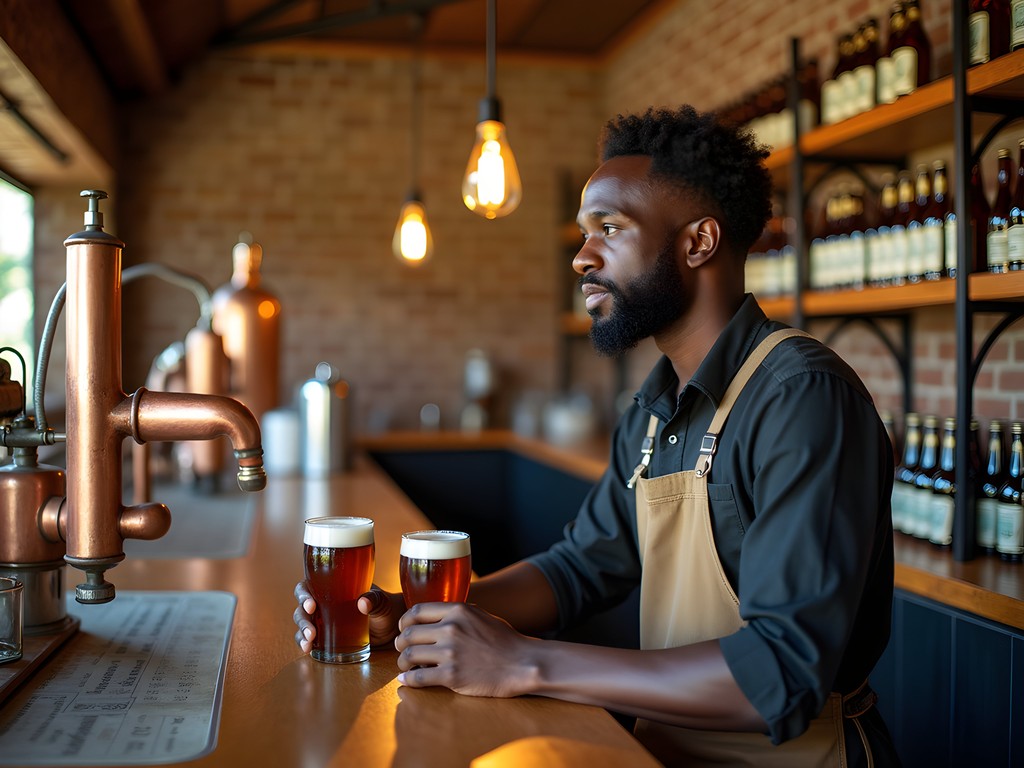
💡 Pro Tips
- Visit brewpubs on weekday afternoons when brewers have more time to chat about their craft
- Respect local drinking customs—it's common to pour a small amount on the ground as an offering before drinking
- Try palm wine (nsamba) for a truly traditional fermented beverage experience
Practical Preparations for Cultural Immersion
Brazzaville requires more preparation than your typical vacation destination. First, visa requirements are strict and often change—I recommend using visa service to navigate the bureaucracy. I applied two months before my trip and still barely received my documentation in time.
Health preparations are essential. Yellow fever vaccination is mandatory, and I recommend malaria prophylaxis as well. My travel medical kit came in handy several times, especially for minor stomach issues and insect bites.
Accommodation options range from basic to surprisingly luxurious. I split my time between the upscale Radisson Blu M'Bamou Palace for reliable amenities and a small locally-owned guesthouse in Poto-Poto for a more authentic experience. The contrast between these accommodations offered interesting perspectives on how different economic classes experience the city.
Brazzaville's climate demands thoughtful packing. October brought occasional afternoon downpours followed by intense humidity. Lightweight, quick-drying clothing is essential, as is a packable rain jacket that won't leave you overheated.
While English is limited outside major hotels, I found that my basic French combined with genuine interest in local culture opened many doors. Several times, my attempts at greeting people in Lingala (a local language) were met with delighted laughter and immediate warmth—proving that effort matters more than perfection when crossing cultural boundaries.
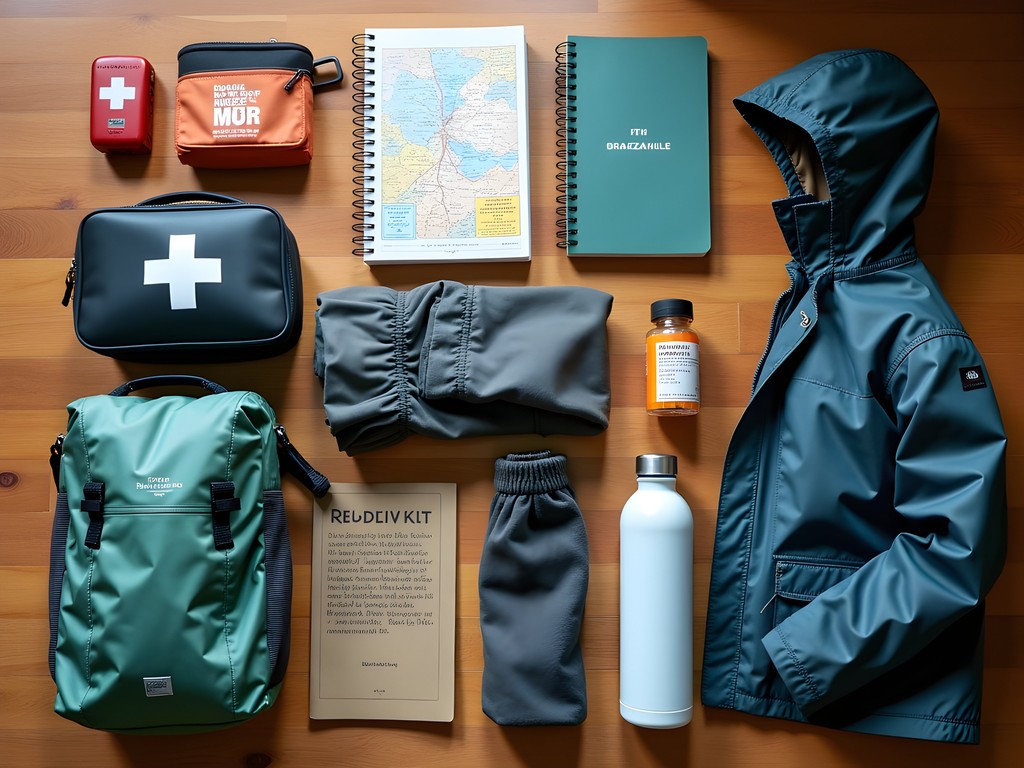
💡 Pro Tips
- Book accommodation with reliable power generators as electricity can be inconsistent
- Bring US dollars as backup but exchange some for local currency immediately
- Purchase a local SIM card at the airport for affordable data access
Final Thoughts
My week in Brazzaville barely scratched the surface of this complex cultural landscape where traditional knowledge and modern innovation create fascinating intersections. As an anthropologist focused on brewing traditions and medicinal practices, I found endless material for my research. But more importantly, I discovered a destination that rewards curious travelers willing to venture beyond conventional tourism.
The connections between brewing and healing that I documented in Brazzaville reflect deeper cultural values about community, spirituality, and the relationship between humans and the natural world. These insights have profoundly influenced my understanding of how traditional knowledge adapts and persists in rapidly changing societies.
For couples seeking a truly unique cultural experience, Brazzaville offers authentic encounters that simply aren't possible in more tourist-oriented destinations. The challenges—language barriers, infrastructure limitations, bureaucratic hurdles—become part of the adventure rather than obstacles to overcome.
As I crossed back over the Congo River toward my departure flight, I couldn't help but feel I was leaving with more questions than answers—the mark of truly meaningful travel. I'll be back, field notebook in hand, ready to dive deeper into the cultural brewing traditions of this remarkable region. Will you be brave enough to join me off the beaten path?
✨ Key Takeaways
- Brazzaville offers unique insights into the intersection of traditional medicine and brewing practices
- Local connections are essential for accessing authentic cultural experiences
- The emerging craft brewing scene provides a fascinating lens for understanding cultural preservation
- Preparation and respect for local customs open doors to meaningful cultural exchange
📋 Practical Information
Best Time to Visit
September to November (fall) or June to August (dry season)
Budget Estimate
$100-150 per day including mid-range accommodation
Recommended Duration
Minimum 5-7 days for meaningful cultural immersion
Difficulty Level
Challenging

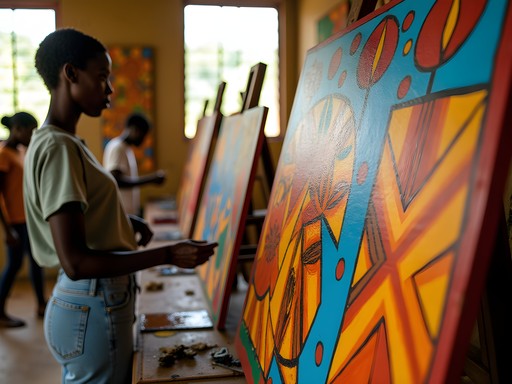
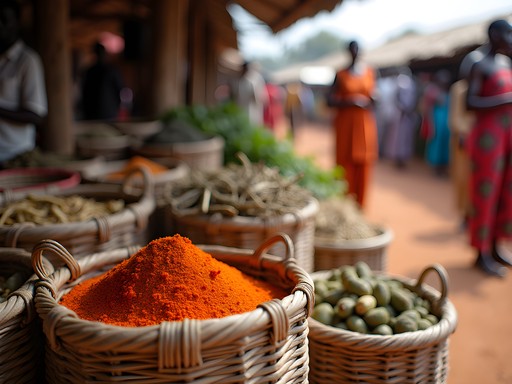
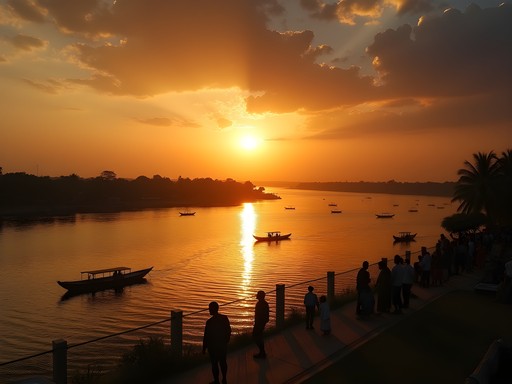
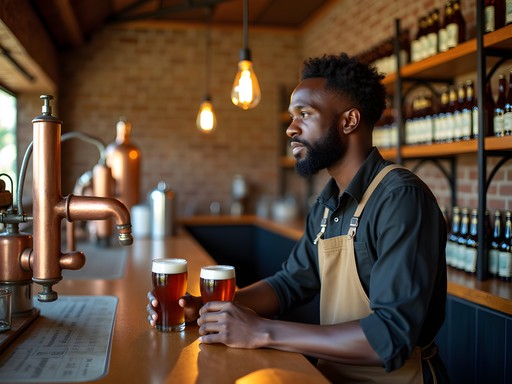
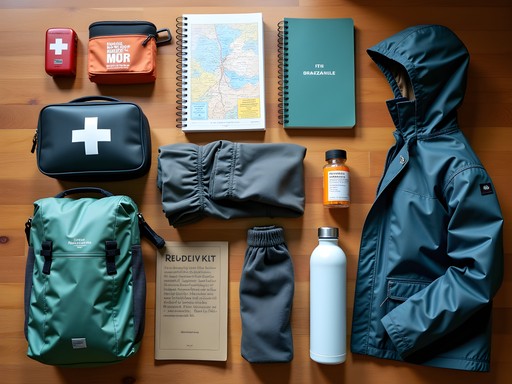


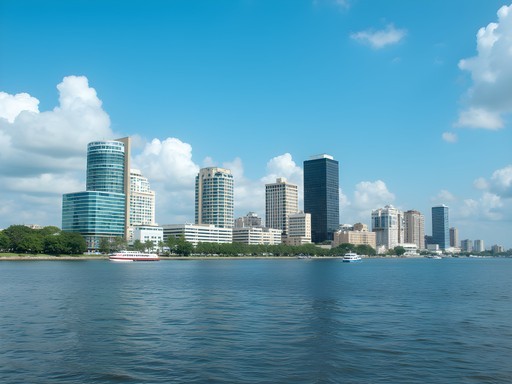
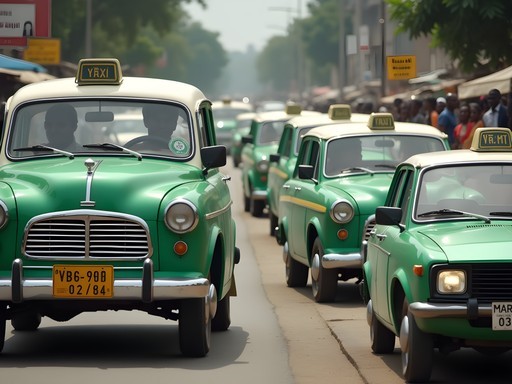

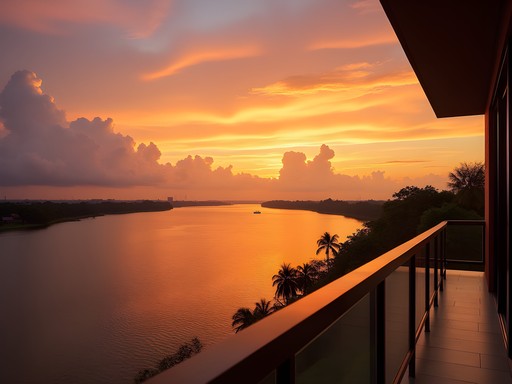
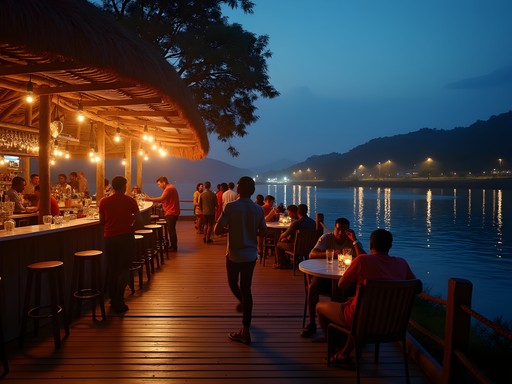
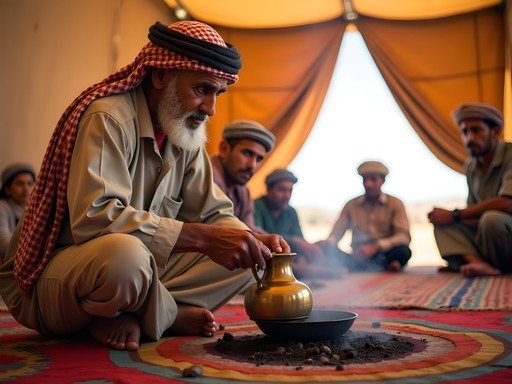
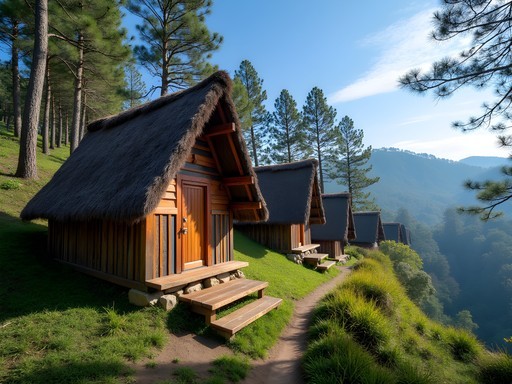
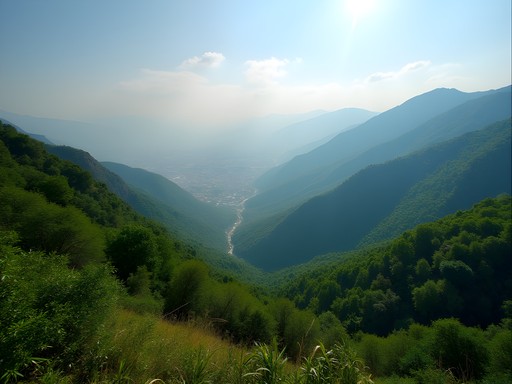
Comments
coffeestar9502
Can you share more about the craft brewing scene? Like where exactly did you go and can tourists just show up?
islandlegend
Going there in March! Any specific neighborhoods you'd recommend staying in?
Claire Hawkins
Scott, this is exactly the kind of deep cultural dive I love reading about! The connection between traditional medicine and brewing practices is fascinating. I'm curious - how accessible were these experiences for someone traveling with children? My three are 6, 9, and 11, and I'm always looking for destinations where we can have authentic cultural experiences that aren't just surface-level tourist activities. The riverside markets you mentioned sound incredible. Did you find people were welcoming to visitors asking questions about traditional practices?
startime
good question! also wondering about safety there
startime
This sounds amazing!! Never even thought about visiting Brazzaville
Claire Hawkins
Right? It's so underrated! We're actually planning a Central Africa trip with the kids next year and this post has me seriously considering adding it to our itinerary.
Sage Dixon
This post is making me rethink my entire approach to Central Africa. I've been guilty of skipping over Brazzaville in favor of the usual safari circuits, but the cultural depth you're describing here sounds incredible. The way you connected the anthropological research with the everyday experience of the city - that's the kind of travel writing we need more of. I'm curious about the safety situation for solo travelers? And did you find many locals spoke English, or is French essential? Might need to finally dust off my French phrasebook from college!
islandlegend
French is definitely essential from what I've heard. But so worth it!
sunsetlife
Love the photos from the riverside!
Jean Wells
Scott, this resonates deeply with my own experience researching fermentation traditions across Africa. The intersection of traditional medicine and brewing practices is fascinating - I found similar patterns in Ethiopia's tej production. Did you get a chance to document any of the specific herbs used in the brewing process? I'm particularly interested in how indigenous knowledge systems are being preserved (or adapted) in urban contexts like Brazzaville. The craft beer scene emerging alongside traditional methods is such a compelling case study in cultural evolution.
sunsetlife
wow this is so interesting! I homebrew and would love to learn more about traditional methods
dreamnomad
Did anyone stay at local homestays rather than hotels? Wondering if that's possible for solo travelers or if hotels are the safer option?
Kimberly Murphy
I've done both in Brazzaville. Homestays are possible but need arranging through local contacts or organizations. For first-timers, I'd suggest starting with a hotel and making connections for future visits. The hospitality is incredible once you're connected with locals!
travelguide
How easy was it to get around the city? Thinking about adding this to my Congo itinerary
Sage Dixon
Not Scott but I was in Kinshasa last year and the river crossing to Brazzaville is an experience in itself! Definitely doable with some French and patience.
waveace
This sounds amazing!! Never even thought about visiting Brazzaville before
islandlegend
Same! Central Africa is so underrated
Venture X
Premium card with 2X miles, $300 travel credit, Priority Pass